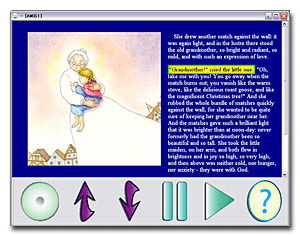ICT and persons with disabilities in the library and information services
Misako Nomura
Deputy Director, Information Center,
Japanese Society for Rehabilitation of Persons with Disabilities
Ladies and Gentlemen,
It is my great honor and pleasure to speak at this UNESCO Workshop on behalf of IFLA/ Library serving disadvantaged persons section.
Using this opportunity I would like to introduce you one of use cases of ICT which could change digital divide into digital opportunity for all including persons with disabilities in the context of library and information services.
The Libraries Serving Disadvantaged Persons Section (LSDP) was established in 1931, four years after IFLA was established. The section firstly focused on hospital patients, and expanded its target user groups such as the elderly in nursing homes and others in specialized care facilities, the house-bound, the deaf, the physically and developmentally disabled, and persons with reading difficulties.
The mission of LSDP is to provide leadership to libraries, associations, and government bodies for the development of specialized services to those groups within the community who are unable to make use of conventional library services and to provide an international forum for the discussion of ideas and sharing of expertise for the development of library and information services.
With this mission, LSDP has developed various projects to promote and improve library and information services to persons with disabilities in collaboration with its related associations including organizations for persons with disabilities and as a result of it we produced many guidelines such as Guidelines for Library Services to Deaf People, Guidelines libraries services to prisoners, Guidelines for Easy-To-Read Materials, and Guidelines for libraries Serving Hospital Patients and the Elderly and Disabled in Long-Term Care Facilities. And recently LSDP published "Accessible Checklist "as a particular tool toward accessible library.
Having these guidelines through 75 year history of LSDP we have just started focusing on new technology which would be very effective to serve those who cannot use conventional printed materials.
The satellite meeting with the theme of "Accessible Library for All " was held in Gothenburg, Sweden before the 71st IFLA Conference in Oslo, Norway. It was organized by LSDP and IFLA/ Library for the Blind Section (LSB). The meeting was started with the concept of democratic right of access to the library services for all including persons with disabilities. All speakers talked about their projects and experiences toward accessible library using ICT such as adapted computers with necessary assistive devices and ICT assistant, DAISY talking books, and user-friendly website to ensure access to information for persons with disabilities.
It was followed by discussion with what libraries including specialized libraries should do in the future for all. During the meeting DAISY was often heard as an alternative format of print materials to serve visually impaired persons and persons with dyslexia among the participants there.
What is DAISY? It is an international standard for accessible multimedia. The DAISY Consortium (http://www.daisy.org) was established in 1996 and it consists of leading not-for-profit organizations around the world serving persons with disability in order to develop and maintain the standard. Its office is located in Geneva, Switzerland.
Accessible multimedia is ideal for persons with disabilities as well as for the general public to share information and knowledge world wide. DAISY helps bridge the digital divide in developing regions of the world and to ensure access to information for the information disadvantaged, such as people with print disabilities, language minorities in a community, indigenous populations who do not have their own script, and those who are illiterate.

In Japan, DAISY implementation was successfully conducted for the visually impaired through the project organized by Japanese Society for Rehabilitation of Persons with Disabilities (JSRPD), with the initiative of one of the founders of DAISY Consortium, Mr. Hiroshi Kawamura. It was carried out form 1998 to 2000, funded by the Japanese Government. At that time 2580 titles were produced.
Since 2001, JSRPD has started an innovative research on the production of DAISY multi-media and its dissemination for people with cognitive and intellectual disabilities .We formed a committee of the project consisting of DAISY experts, staff at the workshop for people with cognitive and intellectual disability, and accessibility professionals, researchers on learning disabilities and parents who have those children to promote DAISY as better way to read and better way to publish. JSRPD are organizing a training course of how to use DAISY production tool while providing multi-media DAISY software developed by JSRPD to non-profit organizations in Japan and developing countries as well as to DAISY Consortium members free of charge.
Further dissemination of DAISY books has been actively carried out to promote library service for persons with reading disabilities as an indispensable one, although copyright law in Japan is a real challenge for us to cope with it.
With our exciting experiences of DAISY, I would like to emphasize on the ICT initiative of public libraries and specialized libraries in the world to ensure information and knowledge sharing for people with disabilities to enjoy social, economic and culture life. In order to do so I really hope on be half of library serving disadvantaged persons that the Tunis Summit will be a great impetus to guarantee the right of access to library and information services for all including persons with disabilities, particularly those people in developing countries.
